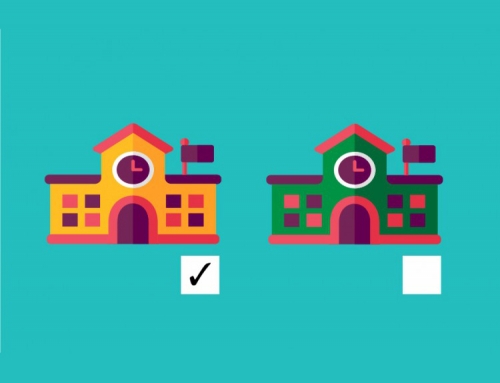 Joanne Bartley, from Kent Education Network spoke at the Reclaiming Education conference about what selection means in Kent.
Joanne Bartley, from Kent Education Network spoke at the Reclaiming Education conference about what selection means in Kent.
I’m from Kent, where, we have the horrors of the 11+ and a grammar school system rather than comprehensive education. Now the government want to create new grammar schools, and I am baffled by their reasoning… Why would anyone want education like we have in Kent!?
There are so many parents and children who suffer stress and disadvantage through Kent’s selective system.
I am going to talk about a few of these families today. The stories that follow are all real, from people I know, or people who’ve been in touch with the Kent Education Network. I have changed names so they cannot be identified.
The first story is about John, a university lecturer, and his son Tommy. Tommy is doing very well at primary school, he wants to go to grammar school, as do most of his friends. His dad can afford an 11+ tutor, and he knows most of the local children have tutors for a year or more, but he decides 11+ tutoring is unfair. He knows some families cannot afford tutors and decides, based on his principles, only to practise with his son at home instead. John knows his son is bright, he knows the test should judge future ability, and the council say that tutoring is not needed.
So Tommy and his dad spend some time in the summer holiday going through practise papers – though Tommy would much rather be playing Pokemon! Tommy takes the 11+ in September, and the test is much quicker than he expects… There are some questions he doesn’t have time to answer. He thinks he did ok despite this…
Did Tommy win or lose in Kent’s 11 plus ‘win a good school’ game?
It turns out Tommy scored a few points below the pass mark – he failed. He says it doesn’t matter, but the next day he cries on the way to school. All his friends ask him how he did and most of them passed the test. Tommy’s dad went to a grammar school, his sister goes to a grammar school. Tommy tells his dad he wants to go to the same school as his sister. But of course he can’t…
John looks at the local school options and is worried. There are a couple of schools rated ‘Good’ by ‘Ofsted’ but both are faith schools, they’re a bus ride away and oversubscribed, and he doesn’t go to church. His son will need to go to the local ‘high school’ which has a poor reputation and is a secondary modern not an all ability school. It has few high achieving pupils, and it has recruitment problems. Its sixth form offers mostly BTEC vocational courses and just a few A level options.
Tommy starts school and encounters lots of supply teachers, and gets bored because he isn’t really challenged. John is angry at himself, he feels his principles have messed up his son’s education. He knows lots of children of similar ability to his son pass the 11+, just because they had tutors.
A survey suggests 45% of parents in Kent do pay for tutors. Many spend £2,000 for a year for 11+ coaching. No one has researched the points difference this coaching might make… However GL Assesment who set the 11 plus have commissioned research that shows their test is only accurate for 70% of tested children. It is clearly a flawed test.
I think a flawed test means unfair admissions.
If John and Tommy lived in a comprehensive area what might have happened? It is not certain Tommy would have attended a good school… But he would not have been barred from attending three local Outstanding schools. He would have found a school with mixed ability pupils and top sets for able children. And Tommy would probably go to the same school as his sister.
My second story of selective education is about Linda, a cleaner and single mum. She’s proud of her daughter Clare who is doing well at school, and she wants her to try for a grammar school place. She can’t really afford an 11+ tutor, but they skip a holiday and she takes an extra job… Clare practises with a tutor after school. She tries her best on the test day, and Linda tells her she loves her no matter what the result is.
Does Clare win or lose in the Kent 11 plus ‘win a good school’ game?
Clare fails the 11+ and feels awful. Her mum has wasted more than a thousand pounds on a tutor. The tutor taught her how to do non-verbal reasoning puzzles. This is not even a useful skill! Clare decides she has let her mum down, she thinks school work is not her strength… She starts to mess about in class and makes no effort with homework, she is underachieving…
The Kent Education Network recently surveyed Kent head teachers and 92% of heads said failing the 11+ effected children’s self esteem, 60% said it also effected future ambition. No one really studies the impact of this 11+ confidence problem.
The government talk about ‘just about managing’ families. Linda is ‘just about managing’, but she spent money she could not afford due to Kent’s system. The government also think grammar schools are good for social mobility, but they simply don’t know how many children give up on education when the 11 plus fails them.
In a comprehensive area what might Linda and Clare’s story be? Of course the system doesn’t guarantee a good school, but they would be £1000 richer, and Clare would start secondary school growing on the promise she showed at primary school, without being defined by a one-off test.
My next Kent story is about a primary school teacher called Mr.Crighton.
Mr.Crighton loves all the children in his class. He especially notices the children from families who don’t give much help with homework, these children are often behind at school but he tries to help them catch up. He also spends time with two pupils who are new to Kent and don’t speak English very well. He cares about the girl who’s not concentrating in class because she’s troubled by her parents breaking up. He tries to encourage the boy who is amazing at maths, but has trouble with reading. He wants the best for all his pupils, and he knows each of their strengths and weaknesses.
But every September, in just one day, the blunt instrument of a two hour test will attempt to judge his children’s worth.
Some of his children will pass and be thrilled. Many will fail and think that it means something about their ability as learners.
Mr Crighton knows that in a month or two some will have developed enough to gain a pass mark. He knows his maths genius pupil only failed due to the English paper. He knows that one boy only passed because he’d been tutored. He knows one girl didn’t do her best because her rabbit died on the test day. He knows a girl who is clever but her mum didn’t put her in for the test.
Mr.Crighton is stuck in this system, he knows it’s wrong, he hates it… He hates that his children think it means something. He can’t tell them what a nonsense it really it is.
Teachers tell us the 11+ test is particularly unfair to families on low incomes, dyslexic children, children with Special Educational Needs, and children who don’t speak English as a first language. These are all vulnerable groups of pupils…
In a comprehensive area Mr.Crighton would do his job the same, teaching and encouraging his children. The work of a successful mixed ability primary school would continue in a mixed ability secondary school. He would never need to worry about a divide.
My next Kent story is about Billy and his twin sister Anna. Anna is good at everything and this bothers her brother. Debbie, their mum doesn’t want Billy to take the test at all, she thinks his dyslexia will mean he has problems with the verbal reasoning and English papers. But Anna wants to take the 11+, and Billy insists he will to take it too. Billy gets extra time in the test and finds two papers easy, but some of the questions in the English paper confuse him.
Are these twins winners or losers in the Kent ‘win a good school’ game? Actually they both failed. But in Kent the head teacher appeals process awards 1,000 places a year, readjusting some children’s scores from a fail to a pass.
Anna and Billy both have high fail scores, and their head teacher enters them both for the appeal panel. Annie is judged fit for grammar school but not Billy. There is no explanation given. The panel felt Anna would benefit from a grammar school and decided her brother would not. This panel process has no scrutiny. No one really knows what ‘grammar school quality’ means. One head tells me that neat handwriting makes a big difference for the appeal panel. Though clearly that should not matter.
Grammar school ability is different wherever there is an 11+. It is different in Bucks and Kent and Trafford, its even different in Dover and Sevenoaks, because a different test is used in each town. No one wants to admit it, but there is no fair and accurate way to divide children of 10 into ‘academic’ and ‘less academic.’
I have seen the scores and a lot of children have marks around the pass mark. Many children of broadly similar ability will be split by an arbitrary divide. It is plainly nonsense to select 30% of children for an ‘academic education’ when nearly 50% of children will take A levels and go on to higher education…
And of course certain groups of children do badly in a test system. Just 1% of Kent’s Gypsy Roma children go to grammar school while other ethnic groups do exceptionally well. Just 4% of Special Educational Needs children reach Kent grammar schools, while 13% attend Kent high schools. We don’t know the results for many other groups because no one even checks.
In a comprehensive area what would happen to Anna and Billy? They’d probably go to the same school, and Billy would not be excluded from a school simply due to his dyslexia.
Next I’ll tell you about Sophie, a sensitive girl who wants to be a doctor. She wins in the Kent 11 plus ‘good school’ gamble. But to her a grammar school is not a good school. She likes art and dance, but the curriculum is very academic. She thought she was clever because she passed the 11 plus, but many children are getting higher marks than her and she feels pressure to compete. This competitive environment simply doesn’t suit her. On top of this she is tired, because she lives in Sussex and has to get up at 6am every day to travel on a train to a Kent school. Her parents would never consider moving her to local school, they’re proud she goes to a grammar school.
There is lots of anecdotal evidence about pressure, self harm and mental health issues in grammar schools. A doctor friend told me this is especially common in girl’s grammars. How would Sophie do in a comprehensive area? I hope Sophie would be in a top set, walk to a local school, and would do well in a school with a mix of abilities and a broader curriculum.
My final story is about Darren, a loser in Kent’s school system from the start. His mum didn’t even enter him for the test. She is on benefits and Darren gets Free School Meals. She tells him she never liked school, and she doesn’t expect Darren to like it either.
No grammar school system can ever help a child like Darren. The 11 plus judges parental ambition as much as it judges ability, because the first step is a desire for a highly academic school by a parent. Many children will never go to grammar school because their parents simply won’t bother with this process. No one will ever know if Darren was clever enough to pass the 11+. Darren is best helped by a great local school that ensures he reaches his academic potential.
Just 7% of entries into the Kent Test are from Free School Meal children, just 3% of passes. This is not even about Free School Meal children being no good at tests. If we look at poorer children who achieve Level 5 in Reading, Writing and Maths at Key Stage 2 just half take the test and go to grammar school, the other half go to secondary moderns.
If the government prioritises families from low income backgrounds, they still have to persuade them to choose grammar schools. But why would they want the stress of a school test? Why would they want to compete against tutored children? Why would they want a long journey to a grammar school instead of a walk to a local school with their friends?
What would happen to Darren in a comprehensive area? We all know there are too many troubled schools for disadvantaged communities, but generally comprehensives do perform better than secondary moderns. Darren has a lot better chance of a good school in a comprehensive county. There are a lots of Darrens, and a secondary modern and grammar school system really does not suit these children.
I hope this silly grammar school distraction will be forgotten by the government, and that real improvements to our education system will be prioritised.
Just to recap, in Kent a grammar school system means:
- Parents face awful pressure to pay for tutors.
- You need your child to score points in a test to win a good school, so that’s awful pressure on children too.
- Most families will get less choice of local schools.
- Admissions are unfair because there is no accurate way to judge a 10 year old’s academic potential
- Children face self esteem problems due to the 11+ test
- Teachers see their pupils divided in a horrible ‘us and them’ segregation
- Vulnerable groups of children are discriminated against by the format of the test
So do you want an education system with stress, division, pressure and poor results? Do you want an education system that makes a whole lot of ten year olds cry every year!?
I don’t hear anyone campaigning because they’d love a return of the 11 plus, but you can’t have grammar schools without this. Why are we even talking about grammar schools in this day and age?
Comprehensive education is inclusive, works for all, and is a system used in most high performing nations. I won’t pretend that our current comprehensive system is perfect, but better funding and good ideas will fix its problems.
I hope no new communities experience the horrors of the 11+ and a grammar school system. Good schools should educate all local pupils, and a divide at 11 is completely unnecessary. A comprehensive system works better for Darren, Sophie, Billy, Anna, Clare, Tommy and Mr.Crighton, and it works for us all!
So do you want an education system like the one we have in Kent? I hope I have convinced you that grammar schools are a mistake, and that we need to defend our comprehensive education system.





